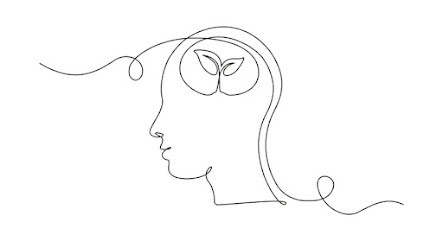Author: Cecilia Clementi, Ph.D., Psy.D
Anxiety is a very common emotion, and in our daily life, we might experience it from time to time in the form of fear or worry. But having an anxiety disorder (AD) is another thing.
Anxiety Disorders (AD) are a category of mental health diagnoses. The Fifth Edition of the Diagnostic & Statistical Manual of Mental Illness (DSM-5) describes these as “disorders that share features of excessive fear and anxiety and related behavioral disturbances” [1).
Anxiety disorders are not only very common both in the general and clinical population, but they represent the most frequent disorders among people with eating disorders (EDs) such as anorexia nervosa (AN), bulimia nervosa (BN), binge eating disorder (BED) and eating disorder not otherwise specified (EDNOS).
According to a recent review of scientific studies (2), the most prevalent psychiatric comorbidities in eating disorders were: anxiety disorders (up to 62%), mood disorders (up to 54%), substance use disorders, and post-traumatic stress disorders (both up to 27% each).
Moreover, the anxiety disorders that are frequently associated with eating disorders are social anxiety disorder (SAD), generalized anxiety disorder (GAD), and panic disorder (PA) (3). In addition, both obsessive-compulsive disorder (OCD) and post-traumatic stress disorder (PTSD), which were previously classified as anxiety disorders, but in DSM-5 have been moved to different chapters, are also very common in the ED population.
Lastly, for most people with eating disorders, anxiety disorders precede the onset of ED, where food (in both patterns of overeating and restricted eating) might represent a dysfunctional coping strategy to deal with overwhelming anxiety symptoms. Often, the AD may be one of the triggers or the maintaining factor of the ED. On one hand, having an ED can lead to anxiety and worry about gaining weight, self-image, social pressure, and fear of judgment. On the other hand, restricting food consumption or other food rituals can be a way to feel more “in control” of one’s life, at least initially.
In any case, the comorbidity with AD is often associated with higher severity of eating disorders symptoms, and it requires a more comprehensive and tailored treatment.
Different but similar stories
Anne is a 17-year-old, and she suffers from anorexia nervosa. She is very insecure and afraid of other people’s judgment. She also has social anxiety and feels anxious during oral tests in class or in other social situations. She started restricting food intake in order to not be criticized for her body shape and gradually became very obsessed with counting calories and exercising.
Sarah is a 25-year-old with bulimia nervosa. She is a brilliant Ph.D. student. She has a high level of perfectionism and a very harsh inner critic. When she is alone, she often plans to binge and then purge to cope with her anxiety. She had a history of panic attacks.
Deborah is a 50-year-old woman living in a big body and has a binge eating disorder. She has a history of many relational traumas. After her divorce, she started to lose control over her eating. She also has generalized anxiety disorder, and she is unable to set boundaries with others and respect herself.
Anne, Sarah, and Deborah: Three different stories, three different types of eating and anxiety disorders. What do they have in common? The enormous suffering and struggle of being trapped in a vicious cycle of anxiety and eating disorders.
How can we help Anne, Sarah, Deborah, and all the people with both anxiety and eating disorders?
Of course, there are many different multidisciplinary, evidence-based interventions in different therapeutic settings (e.g., in and outpatient clinics) based on severity and complexity, such as cognitive-behavioral therapy (CBT), pharmacotherapy, and nutritional counseling.
The role of mindfulness and mindful eating
Practicing mindfulness has a beneficial effect both on physical and psychological health and helps with managing anxiety and stress (4). Mindfulness-based interventions (MBIs) have been found to be effective for many different mental health disorders, including anxiety disorders and eating disorders. (5)
Mindfulness can be considered an important tool in terms of emotional regulation, distress tolerance, managing urges and cravings, and defusion from dysfunctional thinking patterns (e.g., rumination, excessive worrying, intrusive memories, obsessive thoughts, etc.). Mindfulness practice also helps with being present and grounded and reconnecting with our wise mind, instead of being driven by impulses and irrational thoughts. In addition, through mindfulness, we can learn to accept and stay with our experience, whatever it is (pleasant, neutral, or unpleasant), and to then let it go. In other words, mindfulness supports the main targets for recovery from both anxiety and eating disorders:
- presence/connection vs. disconnection,
- exposure vs. avoidance,
- responding vs. reacting,
- disidentification vs. hyper-identification,
- kindness/compassion vs. negative self-judgment.
Mindful Eating Interventions (MEI) have been found to be effective, especially for binge eating, emotional eating, and eating based on external cues (7). Most of the studies using MEI have focussed on binge eating and bulimia and less on anorexia, which is the psychiatric disorder with a higher rate of mortality. Therefore, the severity and complexity of EDs have to be assessed in order to adjust MEI to that specific population and to possibly integrate it into a multidisciplinary treatment. Overall, MEI can have a fundamental role in the treatment of disordered eating patterns and anxiety symptoms related to food, weight, and body shape. Mindful eating is a path to reconnecting with our body in order to restore a healthy and joyful relationship with food, body, and ourselves.
MEI promotes the awareness of the internal signals of the body, trusting its “inner wisdom” by recognizing its needs and its innate regulation processes. Instead of being driven by rigid rules of dieting or compensatory behaviors, mindful eating helps to gradually meet food with all our senses and find a more balanced way of eating. MEI is a way to develop acceptance, kindness, and self-compassion toward our body and ourselves, which can be an antidote to guilt, shame, and anxiety. Again, all of these represent key factors in the treatment of eating disorders and related anxiety.
Overall, mindfulness and mindful eating can be key factors in reducing the suffering and struggles of being entrapped in the vicious cycle of anxiety and eating disorders.
TIPS for dealing with anxiety based on mindfulness tools
- Come back to present moment awareness with body grounding, choosing a position that feels most comfortable (sitting, lying down, walking, etc.).
- Develop awareness of moment-by-moment breathing, recognize the sensations in the body during in-breath and out-breath, and gradually let your breathing become deeper, with longer diaphragmatic outbreathes.
- Set an intention that can guide your action.
- Do not resist anxiety. Instead, allow and accept it as an emotion, sensation, and related thought, exploring it with a curious presence.
- Do not react to anxious thoughts and avoid avoiding them.
- Use self-compassion towards your struggles instead of self-judgment.
- Expand your perspective and try to notice something pleasant or neutral in the present moment.
- Do not get identified with anxious thoughts, but recognize them and let them go.
- Dedicate time for pleasant and relaxing activities.
- Focus on one thing at a time.
Mindful Eating Certificate begins March 8! When you register for our new Mindful Eating Certificate Program, you’ll learn the principles of mindful eating and the research that supports the practice, how mindfulness and mindful eating can help your clients, and much more. Our 10-module program launches Wednesday, March 8, 2023.
Cecilia Clementi, PhD, Psy.D. is a clinical and health psychologist, EMDR, CBT, and DBT psychotherapist, and certified mindfulness and mindful eating teacher. She works in her private clinic and at San Nicola Addiction rehabilitation Centre in Italy. Her areas of expertise are eating disorders, addiction, and trauma. Cecilia has been a TCME Board member since 2015.
Contacts:
Facebook: Mindful Eating Italia
Email: cclementi@tcme.org
References
1. American Psychiatric Association. (2013). Diagnostic and statistical manual of mental disorders (5th ed.).https://doi.org/10.1176/appi.books.9780890425
2. Hambleton, A., Pepin, G., Le, A., Maloney, D. (2022). Psychiatric and medical comorbidities of eating disorders: findings from a rapid review of the literature. Journal of eating disorders, 10 (1):132
3. Swinbourne, J. M., Touyz, S.W. (2007). The co-morbidity of eating disorders and anxiety disorders: a review. European Eating Disorders Review, 15(4):253-74. doi: 10.1002/erv.784.
4. Lan Ngo, T. (2013). Review of the effects of mindfulness meditation on mental and physical health and its mechanism of action. Sante Mente Que, 38 (2), 19-34 doi: 10.7202/1023988ar.
5. Zhang, D., Lee, E.P., Mac, E.C.W., Ho, C.Y., Wong, S.Y.S. (2021). British Medical Bulletin,138 (1), 41-57 doi: 10.1093/bmb/ldab005.
6. Warren, J. M., Smith, N. & Ashwell, M. (2017). A structured literature review of mindfulness, mindful eating and intuitive eating in changing eating behaviors: effectiveness and associated potential mechanisms. Nutrition Research Review, 30 (2(, 272-283 doi: 10.1017/S0954422417000154. Epub 2017 Jul 18.



